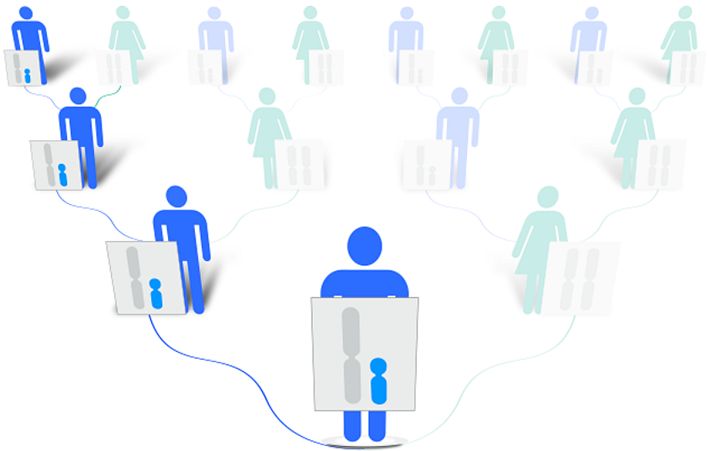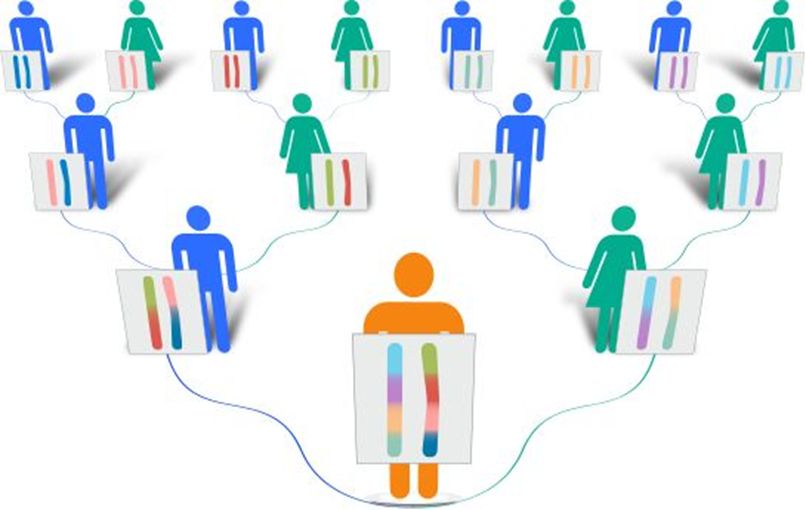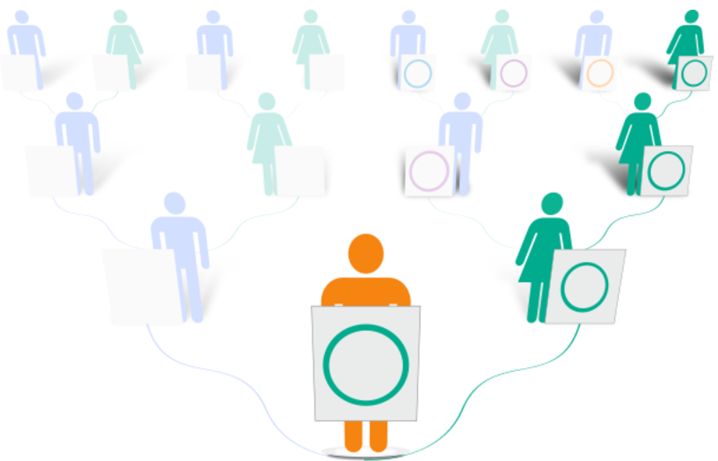What is the right DNA test to take? The right test depends on how the following questions are answered:
- What is the research question you wish DNA testing to answer?
- What is the right test for that question?
- Who is the best person to take that test?
Y-chromosome DNA test – this is the test used by the MacDougall DNA Research Project
Test provider: FamilyTreeDNA.com
A Y chromosome test (Y-DNA) is used to explore a man’s patrilineal or direct father’s-line ancestry. The Y chromosome, like the patrilineal surname, passes down virtually unchanged from father to son. It can be used to trace recent as well as more distant ancestry and linkage. With advanced testing, medieval ancestry and linkage can also be explored. This is what makes the Y-DNA test so particularly useful for this research project.

Every now and then occasional mistakes (mutations) in the copying process occur. These mutations can be used to estimate the time frame in which the two individuals share a most recent common ancestor (MRCA). If their test results are an exact or nearly perfect match, they are related within a genealogical time frame.
Each person can then look at the other’s father-line information, typically the names of each patrilineal ancestor and his spouse, together with the dates and places of their marriage and of both spouses’ births and deaths. The two matched persons may identify a most recent common ancestor that is shared or find that their ancestors were from the same geographical location. As the they know they are linked genetically and share the same patrilineal ancestor, information can be pooled to enable more focused research going forward.
Family Tree DNA Projects enable test results to be viewed and explored in context with the added advantage of project administrator expertise. Depending on the privacy settings chosen by each test taker, individuals can contact their immediate matches.
Autosomal DNA test
Test providers: AncestryDNA; FamilyTreeDNA; LivingDNA; MyHeritage; and 23andMe.
Autosomal DNA (atDNA) is a term used in genetic genealogy to describe DNA which is inherited from your autosomal chromosomes. These are inherited from your parents and their immediate ancestors.

An autosome is any of the numbered chromosomes, as opposed to the sex chromosomes. Humans have 22 pairs of autosomes and one pair of sex chromosomes. Women have two X-chromosomes while men have an X-chromosome and a Y chromosome.
Autosomal DNA tests can be taken by men or women. They trace a person’s autosomal chromosomes, which contain segments of DNA that have been passed down to them from relatives on EVERY branch of their maternal and paternal family tree. Autosomal tests can reveal close relationships such as parents / siblings /aunts / uncles / first cousins, etc with a high degree of accuracy. However, unlike the Y-DNA test described above, autosomal DNA tests are less reliable for detecting relatives who are more distantly related such as 4th or 5th cousins.
Autosomal test takers will also be able to find matches on their X-chromosome(s). Autosomal DNA tests can also confirm admixture percentages (sometimes called ethnicity).
Mitochondrial DNA test
Test providers: Family Tree DNA (Full Sequence)
Mitochondrial DNA (mtDNA) is passed down almost unchanged from a mother to her children which allow the test to trace an individual’s maternal ancestry. Men cannot pass mtDNA on to their children, however both men and women can take the test.

Mitochondrial DNA can be used to determine where an individual’s direct maternal ancestors came from, their locations in historic times and how they migrated throughout the world.
If an exact match is found to another person’s mtDNA test result, it may be possible to identify a common ancestor in the other relative’s matrilineal ancestry. However, typically this test is used for investigation of deeper ancestral roots.